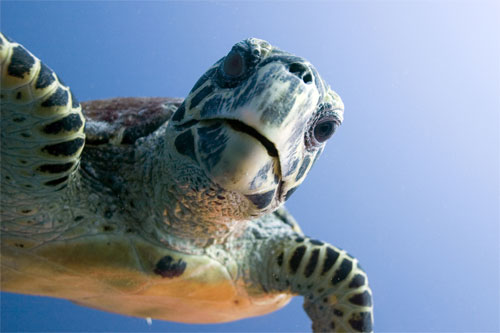Demand for sea turtle soup in China sends its turtle poachers to Palawan.
China's demand for sea turtle soup, turtle eggs, shells, and turtle bones ground up for use in medicine, has caused Chinese fisherman to travel up to 700 miles off mainland China to hunt sea turtles in Philippine waters, according to a report on PRI.org. According to the report, Chinese fisherman have depleted the population of these chelonians, many of them on the IUCN Red list for endangered species, off the coast of China and have begun poaching turtles in the Philippines, and especially off the coast of Palawan, a Philippine hub for ecotourism near waters that are contested by other countries, including China.

Photo credit: Thinkstock
Six Chinese fisherman were captured off Palawan with nine dead green (Chelonia mydas) sea turtles and three live ones in their possession.
In December 2011, six Chinese fisherman were captured off Palawan with nine dead green sea turtles (Chelonia mydas)and three live ones in their possession, as well as a one ton fishing net that was used to capture the turtles, the report said. They will go to trial, and if convicted of all charges, face a maximum 24 years in prison.
The Chinese government is apparently watching the case and wants its citizens to be treated fairly, but Glenda Cadigal, of the Palawan Council on Sustainable Development, a national agency under the Office of the President of the Philippines, says Chinese turtle poachers in the past have been treated too fairly by allowing them or the Chinese embassy to post their bail, in which they then return home without facing trial. In addition to Chelonia mydas, other turtles call the waters off Palawan home, including the hawksbill (Eretmochelys imbricata) sea turtle, one of the most endangered sea turtles on the planet. Their numbers have declined by 20 percent from 10 years ago, according to Cadigal.



